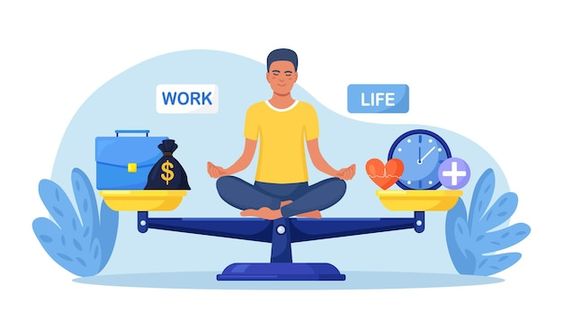Introduction:
In today's fast-paced world, achieving a harmonious life balance can feel like an elusive dream. We're constantly bombarded with demands from work, family, friends, and our own internal pressures. Juggling these competing priorities can leave us feeling overwhelmed, stressed, and burnt out. But finding a sense of balance is essential for our overall well-being and happiness.

Life balance isn't about rigidly dividing our time or achieving a perfect 50/50 split between every aspect of our lives. It's about understanding our own personal values, setting boundaries, and making conscious choices that align with what truly matters to us. This might mean prioritizing self-care, nurturing our relationships, or pursuing our passions.
Recognizing the Signs of Imbalance
Before we can start creating more balance, we need to be able to recognize the signs of imbalance. These can manifest physically, emotionally, and mentally. Here are some common signs to look out for:
- Physical: Fatigue, headaches, digestive issues, difficulty sleeping
- Emotional: Irritability, anxiety, mood swings, feeling overwhelmed
- Mental: Difficulty concentrating, forgetfulness, decreased productivity
If you're experiencing any of these symptoms, it might be a sign that your life is out of balance.
Tips for Creating a More Balanced Life
Creating a more balanced life is an ongoing journey, not a destination. It requires self-awareness, intentionality, and a willingness to make adjustments along the way. Here are a few tips to help you get started:
- Define Your Priorities: What matters most to you? What do you value most in life? Once you have a clear understanding of your priorities, you can start making decisions that align with them.
- Set Boundaries: It's okay to say no to requests and commitments that don't serve you or your priorities. Setting boundaries is essential for protecting your time and energy.
- Schedule Time for Yourself: Make time for activities that bring you joy and recharge your batteries. Whether it's reading, taking a walk in nature, or spending time with loved ones, prioritize self-care.
- Delegate and Ask for Help: You don't have to do everything yourself. Delegate tasks at work or home, and don't be afraid to ask for help when you need it.
- Practice Mindfulness: Being present in the moment can help you appreciate the good things in your life and reduce stress and anxiety.
- Regularly Review and Adjust: Life is constantly changing, so it's important to regularly review your priorities and make adjustments to your schedule and commitments as needed.

.jpg)